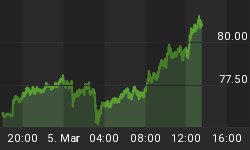In light of the number of manufacturing and goods producing jobs lost in America over the past decade, it's no wonder why many in Washington and on Main St. are clamoring for a trade and currency war with China. The raucous has grown so loud that Congress, Treasury and the Commerce department may soon be forced to declare China a currency manipulator. Senators Lindsey Graham (R) South Carolina and Chuck Schumer (D) New York have introduced legislation that would compel the Treasury to cite the Chinese as currency manipulators, which would allow the Commerce Department to impose duties and tariffs upon them.
On April 15th there was a deadline for the Department of the Treasury to deliver its semiannual report on foreign exchange. That report could have served as the mechanism in which to place the "manipulator" label on the Chinese. But the deadline for the report was delayed by Secretary Geithner in a statement he made on April 3rd.
Make no mistake; the reduction in the manufacturing and goods producing sector of the economy has been and continues to be a serious problem. Since the year 2000, the U.S. has seen its manufacturing sector as a percentage of GDP drop from 14.5% to 11.5%. More troubling is the jobs picture. The number of manufacturing jobs lost in the U.S since the year 2000 has been 5.73 Million. And the number of goods producing jobs lost has been 6.81 million!
But the answer for the U.S. can't be found by simply forcing the Chinese to appreciate their currency or by devaluing the U.S. dollar. History clearly shows any such currency manipulation strategy to be a complete failure. They have already tried it between the years 2005-2008. In 2005 China announced it would increase the value of its currency and abandon its decade-old fixed exchange rate to the U.S. dollar in favor of a link to a basket of world currencies. Later, in 2008, china then returned to a peg against the dollar. However, during that time frame the Yuan rallied from .1208 USD to .1467 USD (a move of over 20%). But the falling dollar had a negligible effect on U.S. exports. For all of 2005 the U.S. deficit with China was $201.5 billion. In 2008, three years into the dollar devaluation and Yuan appreciation, it soared to $266.3 billion (more than a 32% increase). The truth is that currency values are important but not as important as the wages, taxes and regulations within a given country.
To be clear, I believe that China manipulates its currency. But the question is what should we be doing about it? Trade and currency battles are not the answer. After all, the U.S. must finally accept that it's up to the Chinese how they want to handle their trade surplus. If they want to continue to recycle it into our bond market -- thus providing us with much lower rates of interest -- then so be it. If the Chinese don't want to sell dollars and drive up the value of the Yuan, then perhaps we need to consume less and/or produce more as a country. Because of the vast quantities of Treasury holdings the Chinese posses we just aren't in the position to force them to do much of anything.
Besides, does the Commerce and Treasury Department believe that a Yuan revaluation will cause factories in the U.S. to sprout up like spring dandelions? Contrary to what many think, the U.S. should lower taxes and reduce regulations if it wants to compete better with the Chinese. We should also concentrate on boosting our high-tech manufacturing output and not necessarily seek to just supplant China's textile industry.
A trade and currency war with China will have a detrimental effect on both countries but less so for the Chinese. For China it will mean less exports and a lower value on their current Treasury holdings. However, a rising Yuan will also boost living standards for all Chinese citizens. Just think about the benefits received from reduced prices on their metals and energy related imports. Eventually, the Chinese will grow its middle class and be able to consume its own production. But for the U.S. it will mean a much higher interest expense on our debt as the Treasury Department scampers to find a replacement for China's support of our bond market. It will also send interest rates up to a level that would cripple our still overleveraged private sector and now massively-indebted public sector. And unlike the Chinese, it will mean the return of inflation in earnest for all U.S. consumers -- especially given our heavy reliance on imports.
We should think twice and then think again about declaring China a currency manipulator. But even if we do choose to label them a "manipulator", we should be aware that it cannot alone resuscitate the goods producing sector of the economy. If we really want to compete with the Chinese and boost the exporting sector of our economy we should pass laws that significantly reduce the impediments for businesses to compete right here at home. A good place to start is by reducing corporate taxes and also by making sure the Card Check Bill doesn't become law.
















